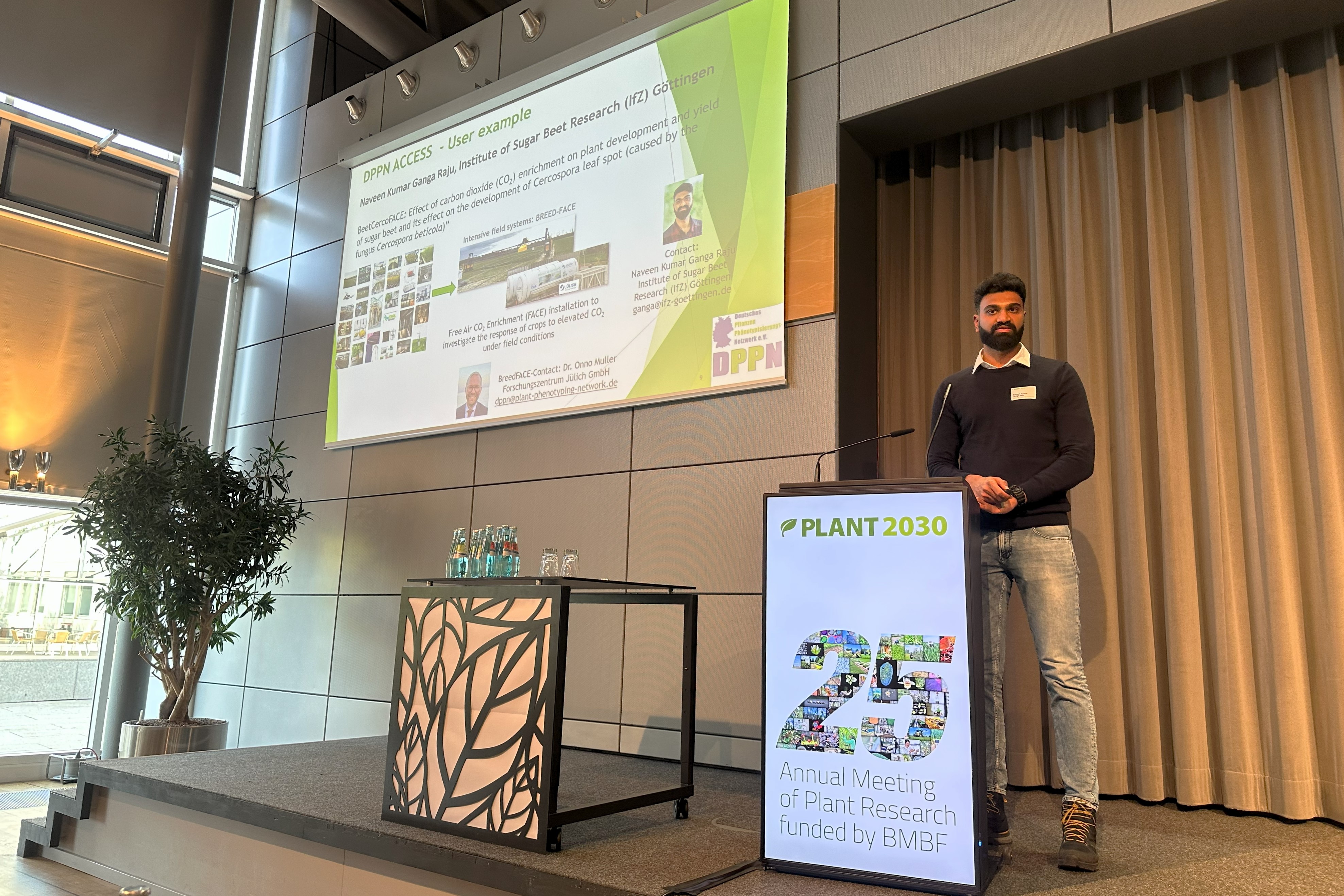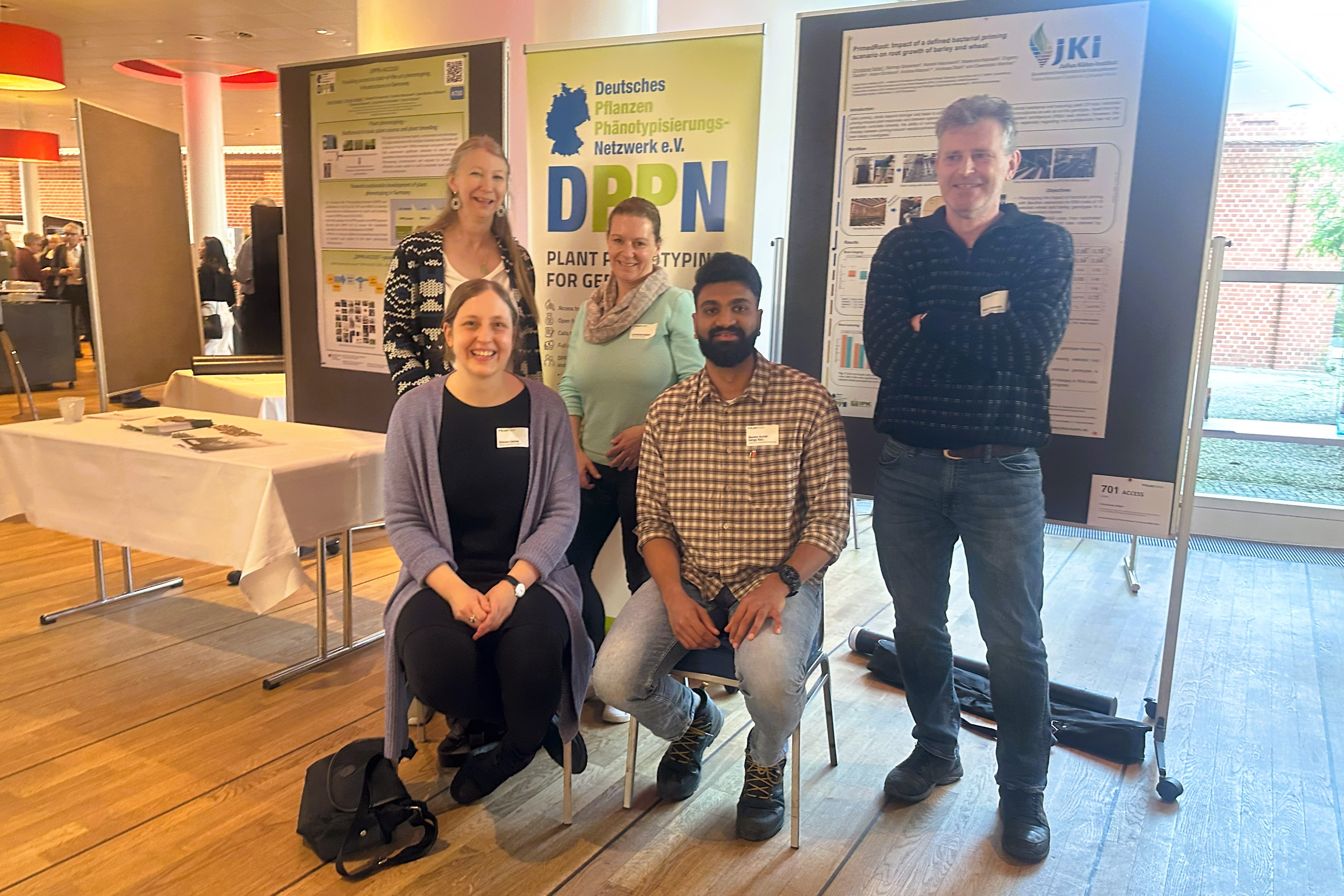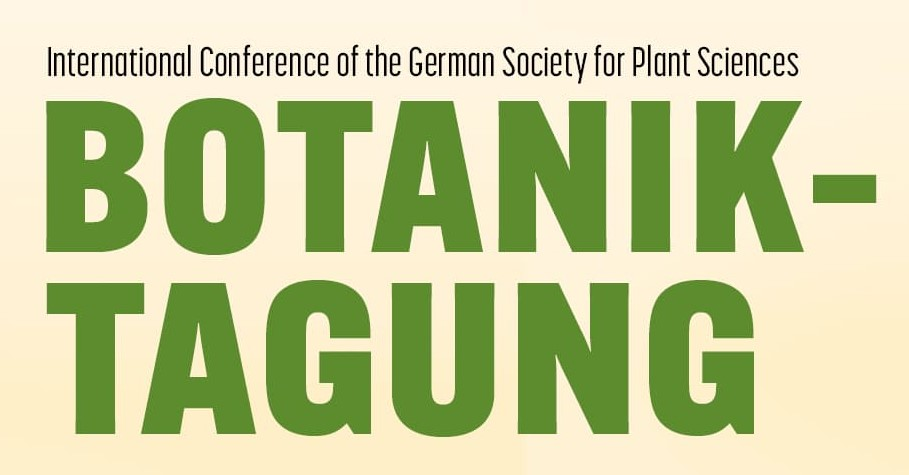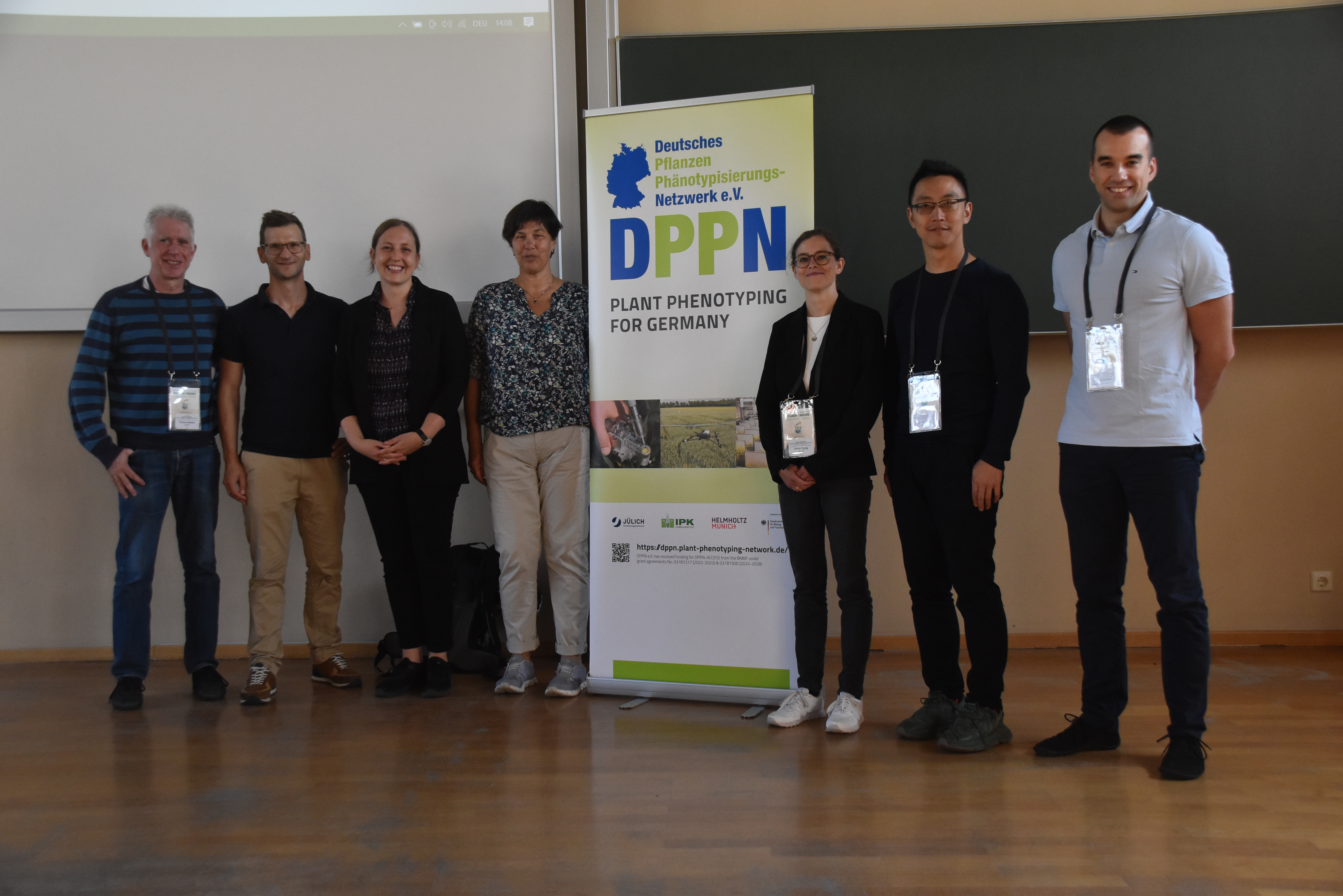We welcome contributions to a special issue: Plant Phenomics & Enviromics across scales.
Deadline: 31 March, 2026
-> more details
The European Plant Phenomics Symposium (EPPS) took place from 16 to 19 September 2025 at the Plenary Building of the World Conference Center Bonn, Germany. Bringing together about 350 participants, the event attracted scientists from academia and industry as well as key stakeholders to exchange on the latest innovations, methods, and applications in plant phenotyping. The symposium fostered fruitful discussions on advancement of plant phenomics under controlled and field conditions, the integration with genomics and data science, and strategies to accelerate the breeding of climate-resilient crops and support sustainable agroecosystems. We look forward to welcoming you to future events!

The Plant2030 status seminar, is the annual meeting of plant research initiatives funded by the German Federal Ministry of Education and Research (BMBF). This year, the Plant2030 status seminar took place from March 05-07, 2025 in Potsdam.


On the first day, March 05 at 3pm, the DPPN provided an overview of the current status of “DPPN- Access”, outlined the available facilities and summarized the access projects that were enabled at Forschungszentrum Jülich, Leibniz Institute of Plant Genetics and Crop Plant Research Gatersleben and the Helmholtz Munich.
Naveen Kumar Ganga Raju from the Institute of Sugar Beet Research, Göttingen presented the results from his access project called “BeetCercoFACE: Effect of carbon dioxide (CO2) enrichment on plant development and yield of sugar beet and its effect on the development of Cercospora leaf spot (caused by the fungus Cercospora beticola)”.
Christiane Seiler from the Julius Kühn Institute (JKI), Institute for Resistance Research and Stress Tolerance, Quedlinburg, presented her results from the access project “PrimedRoot: Impact of a defined bacterial priming scenario on root growth of barley and wheat accessions” within the poster session.
Many thanks to all participants for stimulating discussions!

Naveen Kumar Ganga Raju from the Institute of Sugar Beet Research, Göttingen gave a presentation on his access project “BeetCercoFACE”.

From front left: Simone Gatzke (FZJ, DPPN Access Management), Kerstin Neumann (DPPN project management IPK Gatersleben), Christiane Seiler (JKI, access project “PrimedRoot”), Naveen Kumar Ganga Raju (IfZ, access project “BeetCercoFACE”), Adolf Keßeler (DPPN project management FZJ)
More information:
https://www.statusseminar.de/en/statusseminar/events/status25/program/
The Botanik-Tagung 2024 - the International Conference of the German Society for Plant Sciences (DBG) took place from 15 - 19 September 2024 at the Martin Luther University Halle-Wittenberg.
DPPN e.V. organized a phenotyping workshop on September 18, 2024. More than 70 participants attended the workshop! The program included a keynote lecture on phenotyping plant-plant interactions, followed by DPPN access presentations. We highlighted the importance of phenotyping and gave an overview how to access the DPPN facilities.
Many thanks to all participants and speakers for stimulating discussions!
DPPN Phenotyping Workshop program:
- Plant Phenotyping as a scientific tool and the role of DPPN: How to get access to the phenotyping infrastructures of the DPPN, Simone Gatzke, DPPN e.V. (c/o Forschungszentrum Jülich)
- Key Lecture: How frequently are we phenotyping plant-plant interactions, Tsu-Wei Chen, Humboldt Universität zu Berlin
Overview talks: DPPN Access - Root and tiller phenotyping to identify new variation for barley breeding, Andreas Maurer, Martin-Luther-Universität Halle-Wittenberg
- Magnetic Resonance Imaging (MRI)-based Image Guided Sampling to study starch storage dynamics in yam tuber development, Janina Epping, Universität Münster
- Phenotyping plants in IPK´s PhenoSphere: Natural growth and development achieved through dynamic environment simulation, Marc Heuermann, IPK Gatersleben
- VOC-based phenotyping of plants under stress, Jana Barbro Winkler, Helmholtz Munich
- Conclusion


In der neusten Auflage des Sofa Events Pflanzenforschung dreht sich alles um die „Königin der Feldfrüchte“ – die Zuckerrübe. Als größter Lieferant von Zucker in Europa ist sie für Landwirte, Industrie und Konsumenten so wichtig, dass die Pflanze mit großem Aufwand und High-Tech erforscht wird. Die Zuckerrübe muss sogar zum MRT!
Dr. Isabel Keller (RPTU Kaiserslautern-Landau) und Dr. Benjamin Pommerrenig (JKI Quedlinburg) berichten live über Ihre Arbeit: Was macht die Zuckerrübe so spannend? Warum müssen wir ihren Lebenszyklus unter die Lupe nehmen? Und was verrät uns der Blick in die lebende, wachsende Wurzel?
Mehr Informationen

Das Experiment "BetaFlorage - An MRI-based analysis of sugar beet taproot plasticity during inflorescence formation" wurde im Rahmen des vom BMBF geförderten Projektes DPPN-Access (Grant Agreement 031B1217) gefördert und in Kooperation mit dem Forschungszentrum Jülich durchgeführt.
The Plant2030 status seminar, is the annual meeting of plant research initiatives funded by the German Federal Ministry of Education and Research (BMBF). This year, the Plant2030 status seminar took place from March 20-22, 2023 in Potsdam. The agenda included keynote lectures, project presentations as talks, posters and an elevator pitch session.
The DPPN provided an overview of the current project status of the “DPPN- Access” project, outlined the available facilities and summarized the access projects that were enabled at Forschungszentrum Jülich, Leibniz Institute of Plant Genetics and Crop Plant Research Gatersleben and the Helmholtz Munich. We presented an access example called BetaFlorage: “MRI-based analysis of sugar beet taproot plasticity during inflorescence formation” from Dr. Isabel Keller, RPTU Kaiserslautern-Landau.
Additionally, Melike Aksu, PhD from RPTU Kaiserslautern-Landau, presented her work on the DPPN-Access as a poster. She participated in the elevator pitch and won one of the three awards granted with 500 EURO each, kindly provided by GFPi.
Many thanks to all participants for stimulative discussions!
More information




